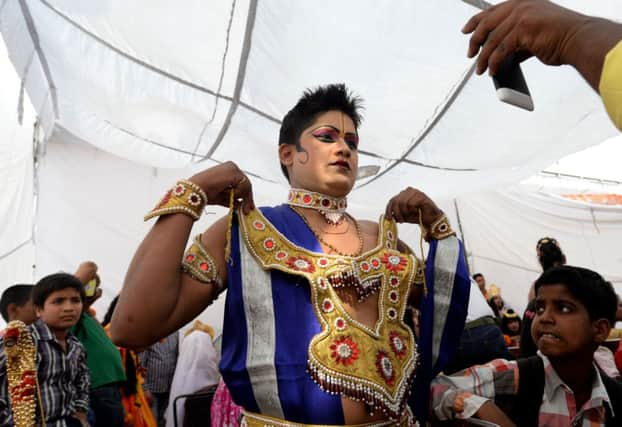India’s court rules on rights of transgender citizens


The Supreme Court yesterday also directed India’s federal and state governments to include transgender people in all welfare programmes for the poor, including education, healthcare and jobs to help them overcome social and economic challenges.
Previously, transgender Indians could only identify themselves as male or female in all official documents.
Advertisement
Hide AdAdvertisement
Hide AdThe decision was praised as giving relief to the estimated three million transgender Indians.
Members of the third gender have played a prominent role in Indian culture and were once treated with great respect. They are mentioned in the ancient Hindu scriptures and were written about in the epics Ramayana and Mahabharata.
Their fall from grace began in the 18th century during the British colonial rule when the Criminal Tribes Act of 1871 categorised the entire transgender community as “criminals” who were “addicted” to committing serious crimes.
After independence, the law was repealed in 1949, but mistrust of the transgender community has continued. Even today, they remain excluded, living on the fringes, in ghettoes, harassed by the police and abused by the public.
Yesterday, the court noted that it was the right of every human being to choose their gender while granting rights to those who identify themselves as neither male nor female.
“All documents will now have a third category marked ‘transgender’. This verdict has come as a great relief for all of us. Today I am proud to be an Indian,” said Laxmi Narayan Tripathi, a transgender activist who, along with a legal agency, had petitioned the court.
The court’s decision would apply to individuals who have acquired the physical characteristics of the opposite sex or present themselves in a way that does not correspond with their sex at birth.
“The spirit of the Indian constitution is to provide equal opportunity to every citizen to grow and attain their potential, irrespective of caste, religion or gender,” the court ruled.
Advertisement
Hide AdAdvertisement
Hide AdThe Supreme Court specified its ruling would only apply to transgender people but not to gays, lesbians or bisexuals. India’s LGBT communities have been protesting the court’s recent decision to reinstate a colonial-era law banning gay sex, which they say will make them vulnerable to police harassment.
The court also ordered the government to put in place public awareness campaigns to lessen the social stigma against transgender people.
Justice KS Radhakrishnan told the court that the “recognition of transgender [people] as a third gender is not a social or medical issue but a human rights issue.”
“Transgenders are citizens of this country and are entitled to education and all other rights,” he said.
The court ruled transgender people would have the same right to adopt children as other Indians. The court said any person who underwent surgery to change his or her sex would be entitled to be legally recognised as belonging to the gender of their choice.
The court also ordered state governments to construct separate public toilets for transgender people and create health departments to take care of their medical problems.
Recently, India’s Election Commission for the first time allowed a third gender choice – “other” – on voter registration forms.
The change was made in time for the national elections being held in phases until 12 May. Some 28,000 voters registered themselves in that category.
Many transgender men in India earn a living by singing and dancing at weddings and births, but others must resort to begging or prostitution.